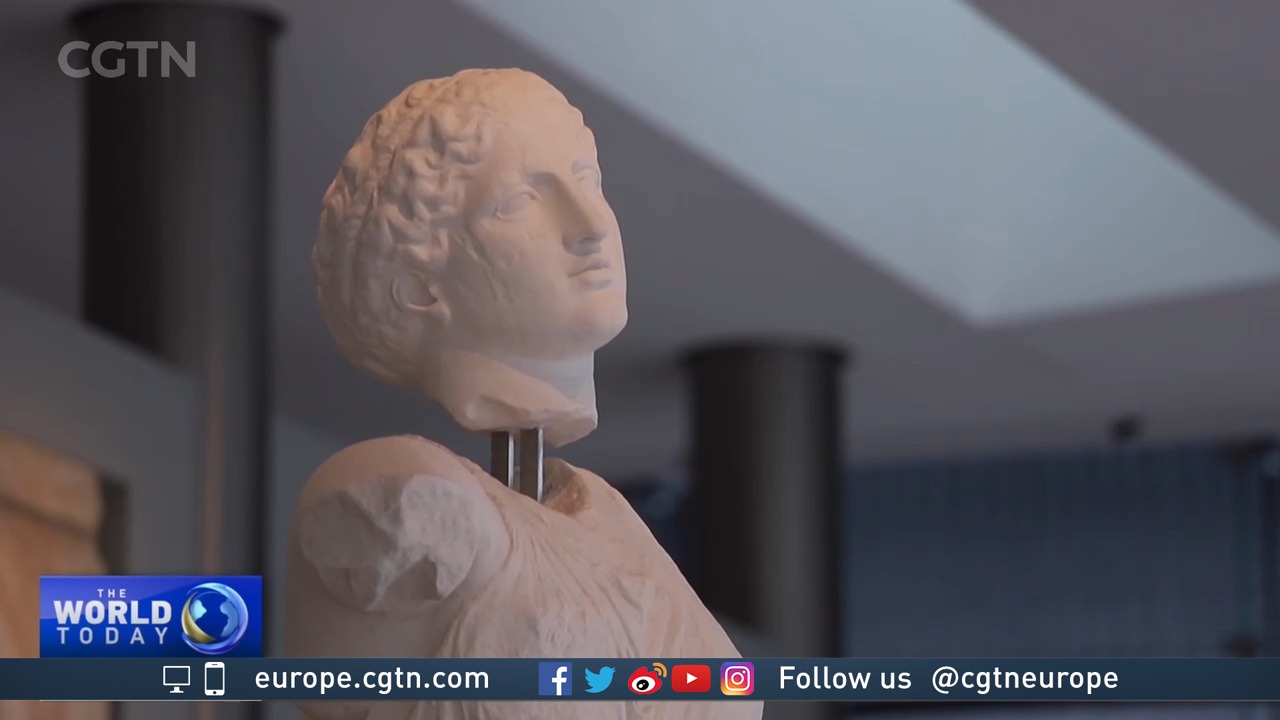02:46

Greece aims to finally have the Parthenon Marbles returned to Athens more than 200 years after a British ambassador removed them.
In a symbolic gesture, fragments of the remaining Parthenon sculptures were transferred from the renovated National Archaeological Museum to the Acropolis Museum on Monday.
The Greek Prime Minister Kyriakos Mitsotakis lobbied his British counterpart, Boris Johnson, for their return during a state visit in November.
Mitsotakis has repeatedly described the marbles as one of the most important cultural links between contemporary Greece and its ancient past. Johnson has stressed that the decision lies with the British Museum, where the marbles are housed.
A resolution proposed by Greece and titled "Return or restitution of cultural property to the countries of origin" has been unanimously adopted by the United Nations General Assembly.
Some 111 countries supported the resolution, a significant result that could assist Greek efforts in convincing the British government to return the artefacts.

The Parthenon Marbles, currently owned by the British Museum in London. /Reuters
The Parthenon Marbles, currently owned by the British Museum in London. /Reuters
Over the decades, there have been many petitions by citizens, politicians and celebrities from around the world to return the sculptures.
They were originally part of the temple of the Parthenon and other buildings on the Acropolis of Athens. Greece's main argument for their return is that the marbles were chipped off the facades of these structures and illegally removed.
"If they really acquired them legally, they would've been able to show a receipt that gave them permission, but such proof doesn't exist," Director-General of the Acropolis Museum Nikos Stampolidis told CGTN Europe.
The British government argues the marbles were acquired legally by Lord Elgin, in line with the laws in force at that time.
Elgin, an ambassador to the Ottoman Empire that was then in charge of Athens, removed the sculptures between and 1801 to 1812, selling the items to the British Museum in 1816. Elgin's behavior was criticised at the time, with renowned English poet Lord Byron stating his action amounted to "looting."
Former Conservative MP and Brexit Party candidate Ann Widdecombe defended Elgin's action. "In the context of the time, it was perfectly legal, and nothing was wrong with it at all. So don't call us thieves, don't say we are looters, don't talk nonsense," she told CGTN Europe.
Parts of the Parthenon are now under construction, restoring damage caused by weather erosion and war. Greeks hope these restoration efforts will also help convince the UK to return the sculptures to the ancient temple.

